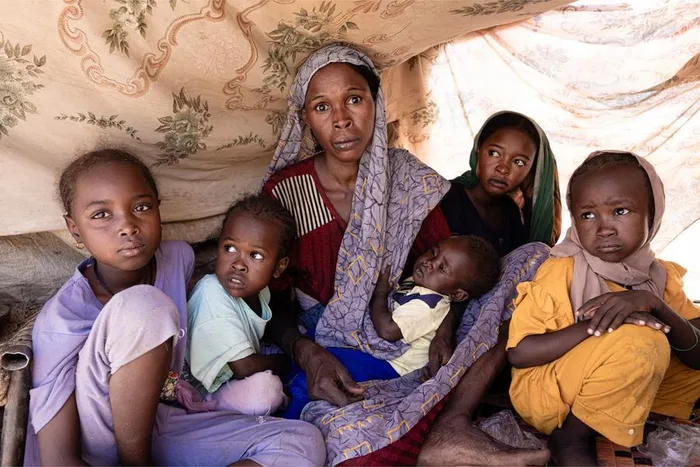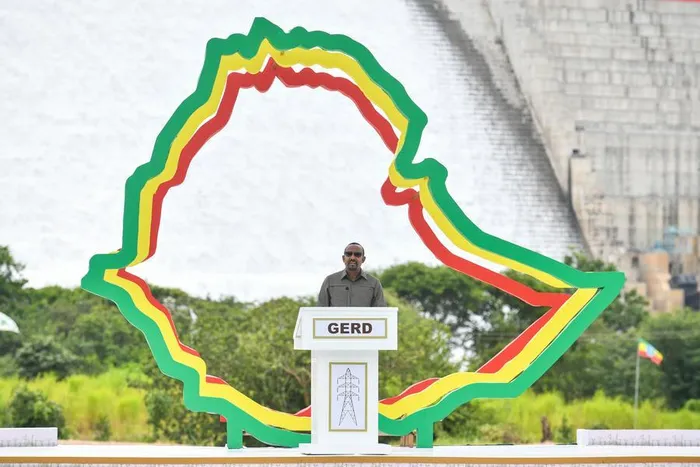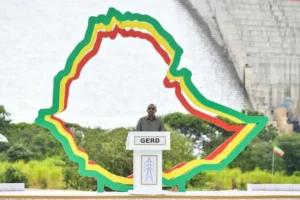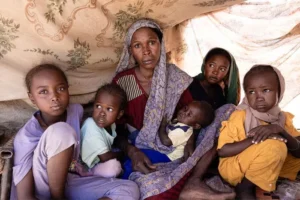The escalating conflict in Sudan, which began in April 2023 between the Sudanese Armed Forces (SAF) and the Rapid Support Forces (RSF), has metastasised from Khartoum into Darfur and other regions, resulting in mass civilian casualties and catastrophic displacement. This is far from generic wartime violence; it is what can be considered as a deliberate and targeted campaign of destruction that has devastated entire communities and driven millions from their homes. Humanitarian organisations confirm millions are displaced both internally and across borders. Recent weeks have brought horrifying escalations, particularly following the RSF’s capture of El-Fasher, which has triggered reports of mass killings, widespread sexual violence, and a fresh wave of refugees. These brutal acts are not isolated incidents but represent a consistent pattern rooted in the RSF’s origins and operational tactics.
Why this meets the legal and moral threshold of genocide
Genocide is a legal term that requires proof of intent to destroy, in whole or in part, a protected group. The evidence on the ground , the selection of targets, the patterns of killings, the use of hunger and displacement as tools, and the RSF’s lineage from the Janjaweed militias of the 2000s, together make the case that we are witnessing what is way more than war crimes or ethnic cleansing. Human Rights Watch and other investigators documented campaigns in the West Darfur that deliberately targeted populations that are non-Arab, accompanied by mass murder, forced displacement and widespread sexual violence, actions that fit the behaviors associated with genocidal intent. Those patterns have recurred and broadened under RSF operations, indicating a strategic campaign to uproot and, in many localities, to destroy communities defined by ethnicity.
In January 2025, after a thorough review of the evidence, the United States government concluded that the Rapid Support Forces (RSF) are committing genocide in Darfur. This determination followed months of meticulous documentation by rights organisations, United Nations bodies, and independent analysts. The International Criminal Court has also expressed grave concern and is actively investigating the recent atrocities. These institutional decisions are not mere rhetoric; they are legal assessments grounded in overwhelming evidence, including eyewitness testimony, satellite imagery, and systematic destruction patterns that point to a clear intent to eliminate protected groups. The only sober conclusion from this evidence is unambiguous: the events unfolding in parts of Sudan constitute genocide.
RSF strategy: continuity of intent and impunity
The Rapid Support Forces (RSF) did not emerge as a neutral security entity. Instead, it evolved from militias deeply implicated in the initial Darfur crisis of the early 2000s, characterised by the burning of villages and ethnic targeting. Therefore, the RSF’s current actions must be viewed through this historical context, as the same personnel, organisational structures, and operational methods are being employed in the present conflict.
The tactics utilised, including house-to-house searches, public executions, deliberate obstruction of humanitarian aid, and forced relocation of populations into areas facing famine are systematic tools of destruction with predictable, devastating consequences. When an armed group combines targeted mass killings with intentional starvation and large-scale displacement, the cumulative effect is to dismantle the victim group’s fundamental ability to survive within their ancestral lands. This outcome constitutes the essence of genocide; it is not merely a figure of speech.
International failure and obligations
The global reaction has been shockingly insufficient. While sanctions and declarations are necessary, they are not enough. The UN’s human rights bodies have documented "appalling reports" of grave violations, including summary executions, yet these findings have not led to meaningful protection for civilians. It is imperative to fast-track international criminal investigations, preserve evidence, and arrest perpetrators. This requires states to exert maximum influence, utilising measures such as asset freezes, travel bans, and, where feasible, targeted intervention to restore humanitarian access and protect civilians. Allowing political negotiations to treat the RSF as a legitimate stakeholder without demanding accountability upfront will only solidify their impunity.
Conclusion — naming the crime to reclaim moral clarity
The gravity of the situation demands precision in language. Characterising these atrocities as "genocide" is not mere rhetoric; it is an essential assertion of legal and moral truth, necessitating a proportional global response. Refusing to use this term condemns the victims to administrative indifference while their destruction persists. If the commitment to "never again" is genuine, the international community must act immediately and decisively. This requires urgent, targeted pressure and the political courage to dismantle the protections currently shielding those intent on completing the violence begun in Darfur two decades ago. The survival of Sudan depends on accountability and forceful protection of civilians—silence and insufficient measures are not a viable alternative. The failure to act will result in the erasure of another population, a stain of shame that the world will bear.
By: Sesona Mdlokovana
Associate at BRICS+ Consulting Group
African Specialist
** MORE ARTICLES ON OUR WEBSITE https://bricscg.com/ (https://bricscg.com/)
** Follow https://x.com/brics_daily (https://x.com/brics_daily) on X/Twitter for daily BRICS+ updates








